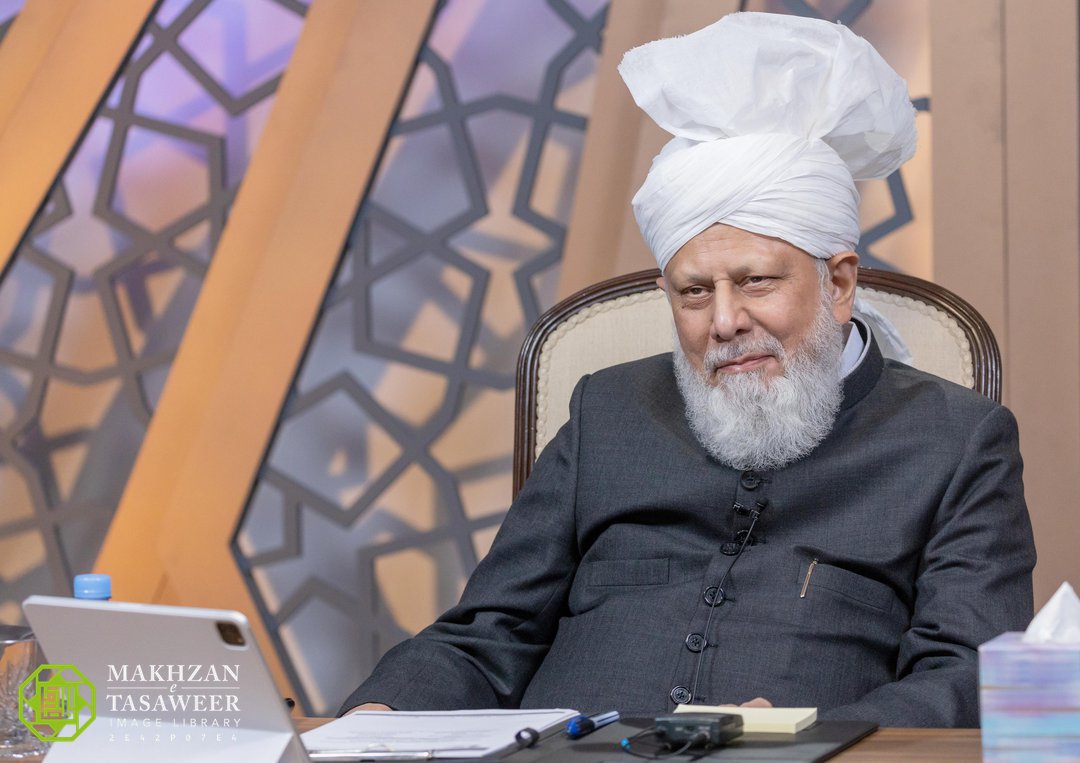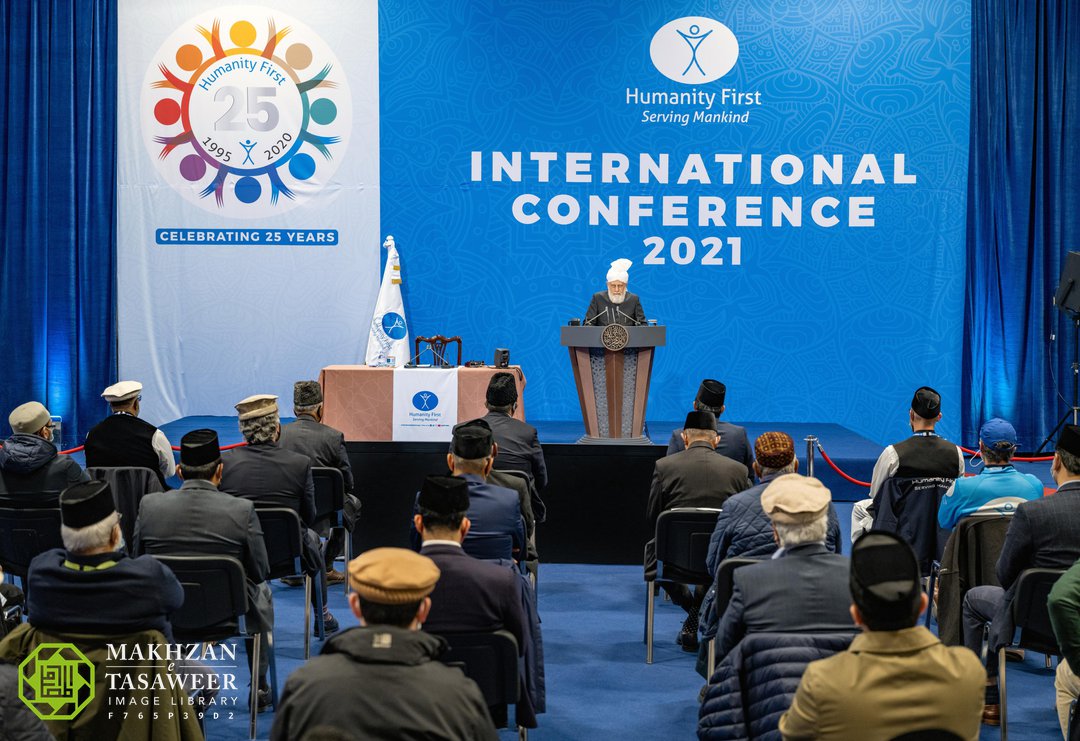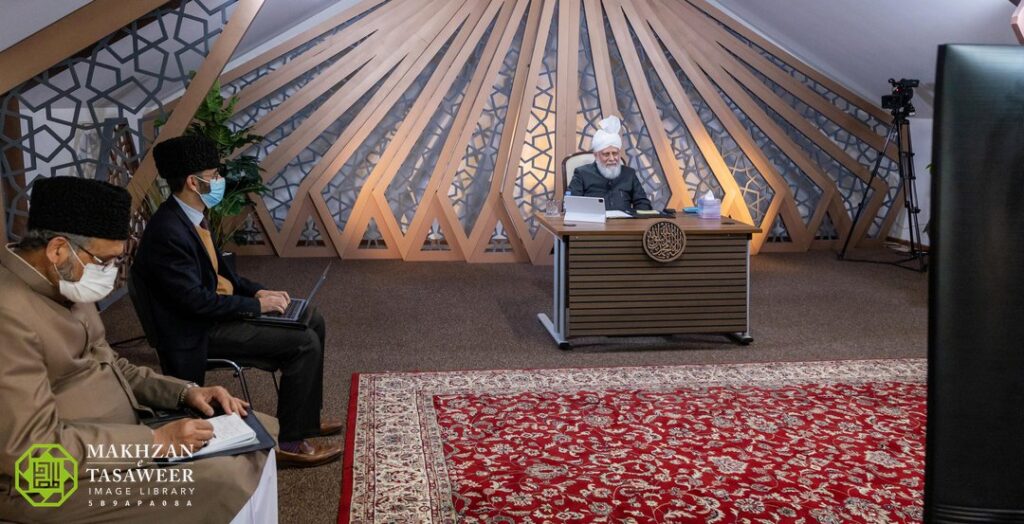
National Majlis-e-Amila in Ireland have Honour of Virtual Meeting with World Head of Ahmadiyya Muslim Community
His Holiness gives guidance on a wide array of administrative and religious matters
On 24 October 2021, the National Majlis-e-Amila (Executive) of the Ahmadiyya Muslim Community Ireland were granted a virtual official meeting and audience with the World Head of the Ahmadiyya Muslim Community, the Fifth Khalifa (Caliph), His Holiness Hazrat Mirza Masroor Ahmad.
His Holiness presided the meeting from MTA Studios in Islamabad, Tilford, whilst the Amila members joined the meeting virtually from the Maryam Mosque in Galway, Ireland.
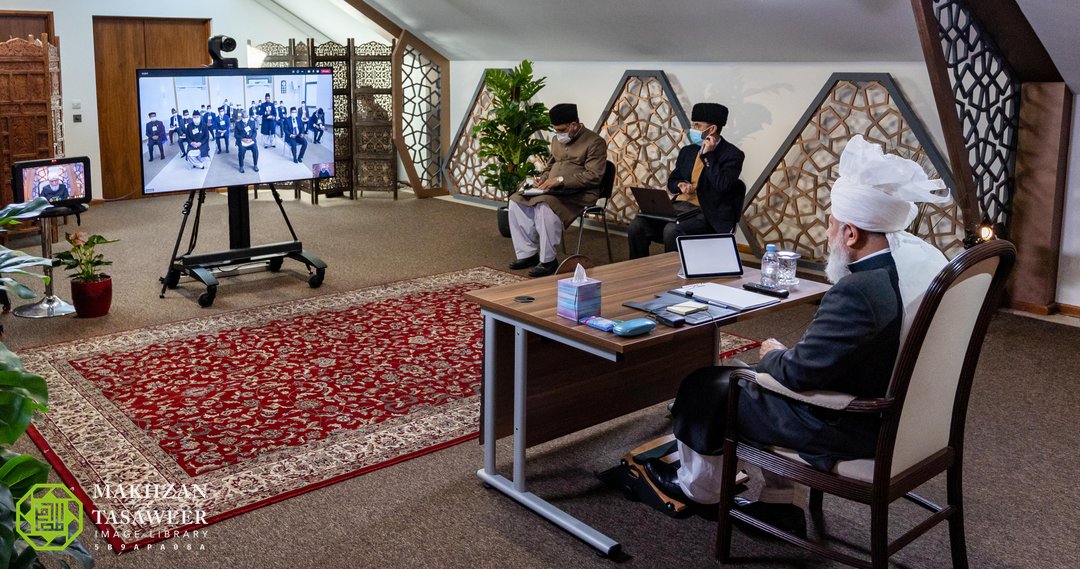
During the meeting, all present had the opportunity to speak to His Holiness and to receive the guidance and instructions of His Holiness on a range of issues.
Speaking on the issue of carrying out effective outreach work (Tabligh) in the country, Hazrat Mirza Masroor Ahmad said:
“You should increase your personal relations with people and have 1-1 meetings and contacts to increase the Tabligh work. Invite people and establish personal contacts. It is only when you establish personal contacts with people that you can effectively carry out Tabligh. Otherwise, simply distributing leaflets is not enough, as you will not know who has read them and what they did with it. The leaflets are only one of many ways. You should explore every avenue to see how you can carry out Tabligh in the most effective manner in your circumstances.”
One of the missionaries in attendance mentioned that he had joined a cycling club to better integrate with the locals and establish contacts with the surrounding community in order to open up avenues of Tabligh.
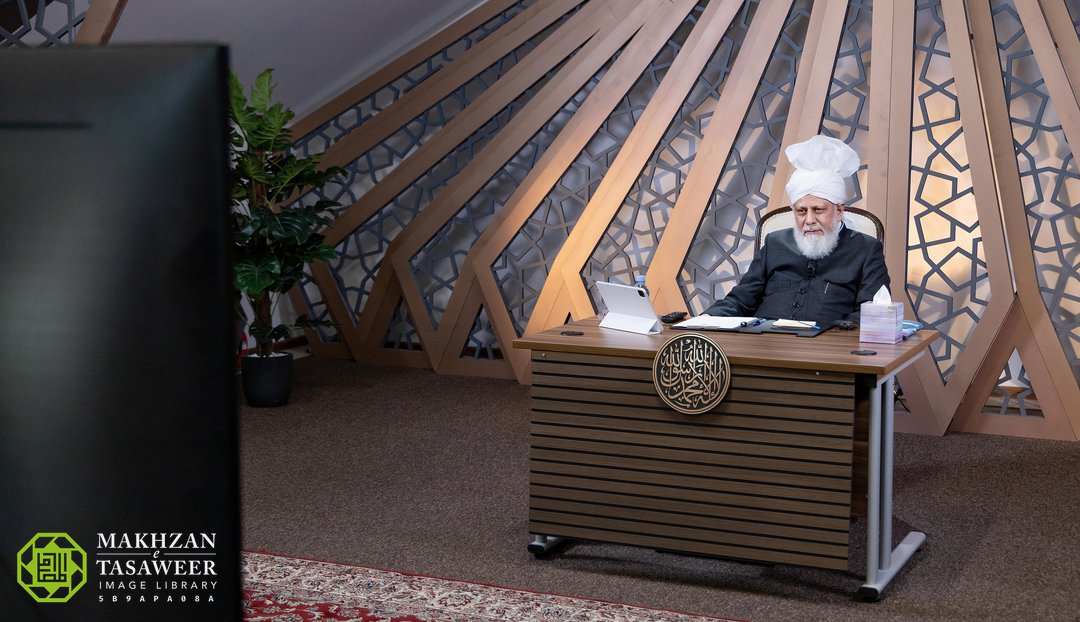
His Holiness advised that other youth should also be encouraged to join such clubs where they can integrate with the locals whilst also maintaining their own strength of faith and thus they will be able to establish contacts to make people aware of the peaceful message of Islam.
Speaking to the Talim Secretary, responsible for improving the education standards within the Ahmadiyya Muslim Community, His Holiness mentioned that there should be a students’ advisory committee that guides young people on the best ways to excel in their education and advises of the most appropriate careers to pursue and excel in.
As the meeting concluded, one of the Amila members asked if His Holiness felt that people had learnt any lesson from the COVID-19 pandemic.
Hazrat Mirza Masroor Ahmad said:
“People are continuing their worldliness and materialism like before and they have not turned towards God and neither do they wish to do so. The recent floods that have occurred – including those in Germany – have they learnt any lesson from them? For a short while, their attention turned towards Allah when they were forced to line up in queues to get food and had to suffer. However, after that, they forgot everything when their situation improved. It is just as Allah the Almighty states in the Holy Quran that, ‘when there is a difficulty, people turn towards Me, but when they are alleviated of the hardship, they forget about Allah.’ So, it seems that much bigger hardships are going to befall the people and only then will they learn some lesson, otherwise being afflicted with one or two hardships will not be sufficient for this.”
One of the Amila members mentioned to His Holiness that there are non-Muslims who are attracted towards the spiritual teachings of Islam but are not inclined towards following its moral code of conduct. He asked if such people should be encouraged to still join Islam with the intention that later on, with time, they will work on following the moral code of conduct of Islam too.
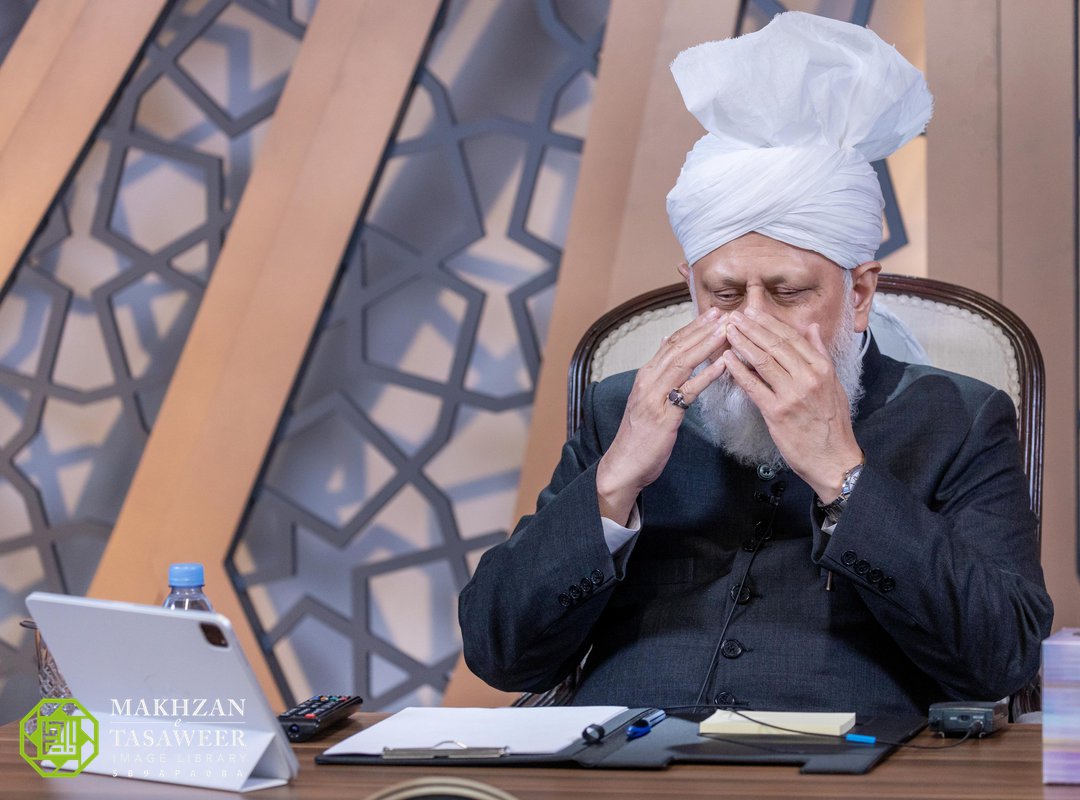
Hazrat Mirza Masroor Ahmad said:
“We do not do Tabligh just for the sake of increasing our numbers. What is the benefit of asking somebody to join the Ahmadiyya Muslim Community and Islam, without his determination of reforming himself? What is Islam and what is religion? Religion requires you to reform yourself, to bow before Allah, to discharge your duties you owe to Allah the Almighty… So, you tell them what are the Islamic teachings and that they should not only consider that this life is the only life; you will have to face another life which is an eternal life and there you will be answerable to Allah the Almighty for all your deeds. If you have done something good, you will be rewarded, if you have done something wrong, you will be punished. So, you will have to realise this fact, that this life is not the permanent life and you should always think of the life that is to come where you will be answerable for all your deeds.”
